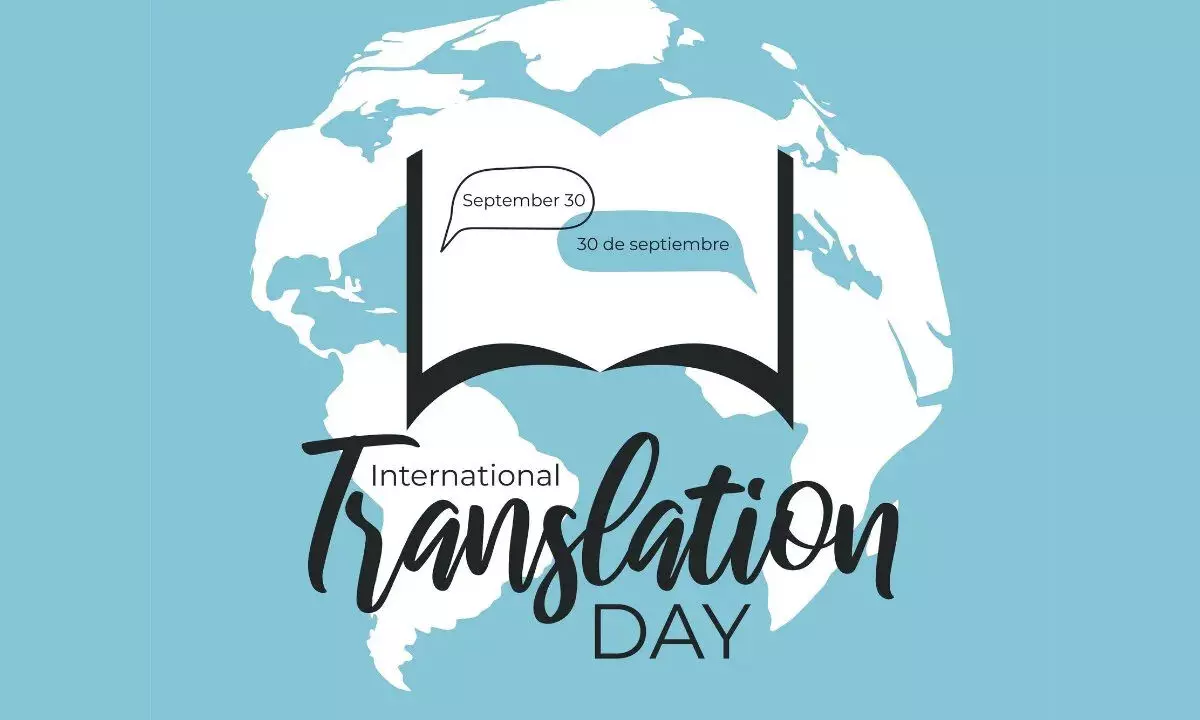International Translation Day 2024: Theme, History, and Importance

Each year, September 30 is celebrated as International Translation Day to acknowledge the crucial role that translators and language experts play in bridging communication gaps worldwide
Each year, September 30 is celebrated as International Translation Day to acknowledge the crucial role that translators and language experts play in bridging communication gaps worldwide. These professionals enhance international dialogue, understanding, and cooperation, thus fostering global peace and security. Their efforts help ensure that ideas and cultures are understood and appreciated across different languages, promoting international collaboration.
The day is dedicated to recognising the achievements of translators who continue to make a significant impact on global communication. It encourages language professionals to keep up their remarkable work, which is vital for connecting people across linguistic and cultural barriers.
Significance of International Translation Day
According to the United Nations, International Translation Day is an opportunity to appreciate the contributions of translators and language experts in improving global communication and understanding. These professionals are not only essential for international cooperation but also contribute significantly to peace and security across nations.
The observance of this day aims to raise awareness of the vital role languages play in societal progress. It also seeks to highlight the importance of the translation profession in preserving linguistic diversity and promoting mutual comprehension.
International Translation Day 2024 Theme
The theme for International Translation Day 2024 is "Translation, an Art Worth Protecting: Moral and Material Rights for Indigenous Languages."
This theme emphasises critical ethical concerns such as data privacy, copyright, and the fair use of translated works. It also highlights the challenges translators face when working with Indigenous languages, particularly regarding data collection and maintaining high industry standards. The theme urges the global community to recognise the need for protecting Indigenous languages and the rights of translators.
History of International Translation Day
International Translation Day was officially recognised by the United Nations General Assembly (UNGA) on May 24, 2017, when they passed a resolution acknowledging the importance of translators and language specialists. This resolution was backed by eleven countries, reflecting the global significance of translation work.
September 30 was chosen for this observance because it coincides with the feast day of St. Jerome, a notable figure in translation history. St. Jerome, a priest from northeastern Italy, is famous for translating the Greek manuscripts of the New Testament into Latin. His work paved the way for the spread of religious and cultural knowledge across different languages.
The Growing Need for Translation Services
In today's interconnected world, the demand for language experts is continually rising. Understanding different languages is essential for maintaining cultural diversity and promoting international cooperation. Translators are indispensable in breaking down language barriers, enabling effective communication, and fostering mutual understanding. Their contributions are essential in ensuring that global communication remains inclusive and diverse.
International Translation Day is a tribute to the invaluable work of translators and language professionals who contribute to global harmony and cultural preservation. As the world becomes more interconnected, the importance of these experts will only continue to grow, making their work essential for fostering understanding and collaboration across cultures and languages.










